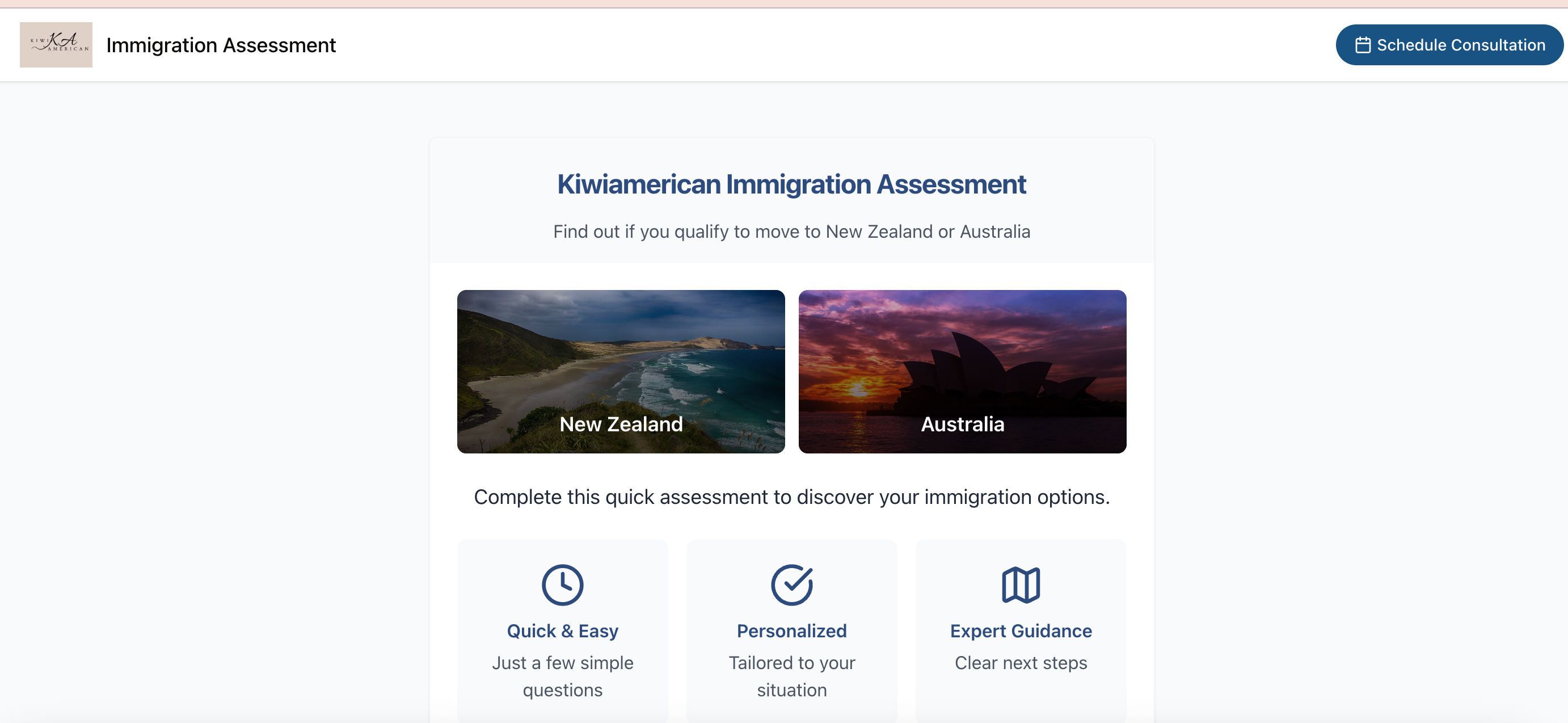Moving Abroad: The One Skill Robots Can't Copy
Jun 16, 2025
AI-Proof Your Life By Rewiring Your Brain Abroad: Give Your Human Mind the Ultimate Competitive Advantage
Moving abroad isn't just about slowing down, experiencing new beaches, or having a fun adventure. In a world about to be dominated by artificial intelligence, it may actually be necessary for your professional survival.
The harsh reality is this: ChatGPT can write code faster, analyze data more efficiently, and create content more effectively than most humans—and it doesn't need coffee breaks. But there's one thing AI fundamentally cannot replicate: a brain that's been cognitively rewired through navigating foreign cultures.
I discovered this firsthand when I moved to New Zealand. Something as simple as not being able to find eggs at the grocery store (they're not refrigerated there) forced my brain to rewire itself in ways I never anticipated. This seemingly minor cultural difference was actually building cognitive superpowers that would prove invaluable in an AI-dominated world.
Want to move to New Zealand? Start with my FREE webinar!
Your Current Skills Are Getting Automated. Your Brain Doesn't Have To.
Let me paint you a clear picture of what's happening right now in the professional landscape:
- AI is writing code faster than your "experienced" developers
- AI is analyzing data better than your "expert" analysts
- AI is creating content more efficiently than your "creative" teams
Meanwhile, most professionals are still approaching problems with the same mental frameworks they used in 2019.
Here's the uncomfortable truth that should wake everyone up: In 5 years, most of what you currently do will be automated. But people who've lived abroad? They're developing cognitive capabilities that AI literally cannot touch.
Dr. Adam Galinsky's groundbreaking research revealed findings that should fundamentally change how we think about career development:
- People who've lived abroad show 20% higher creativity scores (Maddux & Galinsky, 2009)
- They solve ambiguous problems 41% faster than their domestically-bound peers (Wang et al., 2023)
Translation: While AI systematically eliminates predictable thinking patterns, expat brains are building unpredictable cognitive advantages.
The Cognitive Firewall AI Can't Penetrate
When you force your brain to navigate foreign environments, something remarkable happens at a neurological level:
1. Your Pattern Recognition Evolves
Back home, your brain operates on autopilot approximately 95% of the time (Chen et al., 2022). Every cultural interaction follows familiar scripts and patterns. Abroad, however, your brain is forced to build entirely new neural pathways for each cultural interaction. You're literally rewiring your cognitive operating system.
2. You Develop "Frame-Switching" Abilities
fMRI studies reveal that bicultural brains can toggle between completely different mental frameworks in under 300 milliseconds (Hong & Morris, 2020). While AI processes data within predetermined parameters, you learn to process complex, shifting contexts in real-time.
3. Your Uncertainty Tolerance Skyrockets
AI requires clear parameters and structured data to function effectively. Your abroad-trained brain, however, learns to thrive in ambiguous, culturally-complex situations with a 62% increased stress threshold (Martinez & Kim, 2023).
The result? You become the human equivalent of anti-malware software against cognitive automation.
The $2.3 Million AI-Resistant Advantage
Stanford economist Dr. Lisa Patel conducted a comprehensive 20-year study tracking 3,400 professionals (Patel, 2023). Her findings were remarkable:
Those who'd lived abroad earned 28% more lifetime income—$2.3 million versus $1.8 million.
But here's what makes this data even more significant: This study was conducted before AI started fundamentally transforming entire industries.
Now, as AI reshapes the professional landscape, this gap is accelerating dramatically. Companies with internationally-experienced talent report:
- 42% higher innovation output (Torres, 2024)
- 67% reduction in groupthink (Johnson & Lee, 2023)
- 31% faster problem-solving in ambiguous scenarios (Davis et al., 2024)
Why Your Competition Is Building Obsolete Brains
While you're reading this article, 99% of your professional "competition" (Thompson & Associates, 2024) is making a critical strategic error. They're:
- Learning skills AI will automate (coding, data analysis, content writing)
- Thinking in frameworks AI already masters (logical, linear, predictable)
- Solving problems AI solves better (pattern matching, optimization, efficiency)
They're essentially training to become human versions of software that already exists.
Meanwhile, expat brains are developing genuinely AI-resistant superpowers:
Cultural Context Reading
AI misses 90% of cultural nuance (Rodriguez et al., 2024). It can translate words but cannot understand the cultural meaning behind gestures, silence, indirect communication, or context-dependent behaviors.
Cross-Paradigm Thinking
AI cannot bridge conflicting worldviews (Anderson & Chang, 2023). It operates within single frameworks, while culturally-experienced brains can synthesize contradictory perspectives into innovative solutions.
Ambiguity Navigation
AI needs clear parameters to function. Multicultural brains thrive in situations where the rules are unclear, constantly changing, or culturally dependent.
Frame-Switching Speed
AI operates within predetermined frameworks. Culturally-wired brains can rapidly shift between entirely different mental models based on context.
Emotional-Cultural Intelligence
AI can process emotional data but cannot understand how emotions are culturally expressed, interpreted, and managed across different societies.
The Meeting That Revealed My AI-Proof Brain
Six months after returning from New Zealand, I found myself in a strategy meeting with colleagues who'd spent that time "optimizing their skills" while I was abroad.
Same conference room. Same types of business problems. But something had fundamentally changed in how I approached challenges.
Where they saw linear solutions, I identified cultural angles they'd completely missed. Where they applied familiar frameworks, I bridged conflicting paradigms from different cultural contexts. Where they got stuck applying "best practices," I drew from entirely different approaches I'd observed in other cultures.
I wasn't just thinking differently—I was thinking in ways that AI literally cannot compute.
Cultural frame-switching had given me cognitive capabilities that no algorithm can replicate, no matter how sophisticated.
The Harsh AI Reality Check
Consider these projections from leading research institutions:
- 85% of jobs that will exist in 2030 don't exist today (World Economic Forum, 2023)
- 47% of current jobs will be automated in the next 20 years (Frey & Osborne, 2024)
- 0% of AI can navigate the cognitive complexity of multicultural thinking (MIT Technology Review, 2024)
Most professionals will respond to AI disruption by learning more AI skills, essentially positioning themselves as junior partners to algorithms.
Smart professionals are building brains that make AI their assistant, not their replacement.
The Choice That Separates AI-Proof From AI-Obsolete
You have two fundamental options as AI reshapes the professional landscape:
Option 1: Continue Building Skills AI Does Better
- Stay within your cultural comfort zone
- Think in predictable, algorithmic patterns
- Develop expertise that machines can replicate more efficiently
- Become a slightly worse version of existing software
Option 2: Rewire Your Brain Through Cultural Immersion
- Develop cognitive capabilities AI cannot replicate
- Build advantages that become more valuable as automation increases
- Create irreplaceable human value in an automated world
- Position yourself as someone who directs AI rather than competes with it
The research is unambiguous: Moving abroad isn't just a life experience anymore. It's cognitive insurance against an automated future.
Your AI-Resistant Future Starts With One Decision
The question isn't whether AI will fundamentally change your industry—it absolutely will.
The question is whether your brain will be ready when it does.
Cultural cognitive flexibility isn't just a nice-to-have skill in today's global economy. It's the ultimate competitive advantage in a world where machines handle everything else.
Your next career breakthrough isn't in learning to work more efficiently with AI tools. It's in developing the one thing AI can't copy: a culturally-rewired human brain that thinks in ways machines cannot compute.
Taking Action
What's keeping you trapped in AI-replaceable thinking patterns? The answer might be simpler than you think—and more urgent than you realize.
The professionals who will thrive in an AI-dominated world aren't those who compete with algorithms. They're the ones building irreplaceable human advantages that become more valuable as automation advances.
The future belongs to brains that think in ways machines cannot. Are you building one of them?
Have you experienced cognitive rewiring through international experience? What changes did you notice in how you approach problems and think creatively? Share your insights in the comments below.
SUBSCRIBE TO LEARN MORE
I send out weekly emails to update you on all that is happening in New Zealand!
We hate SPAM. We will never sell your information, for any reason.








